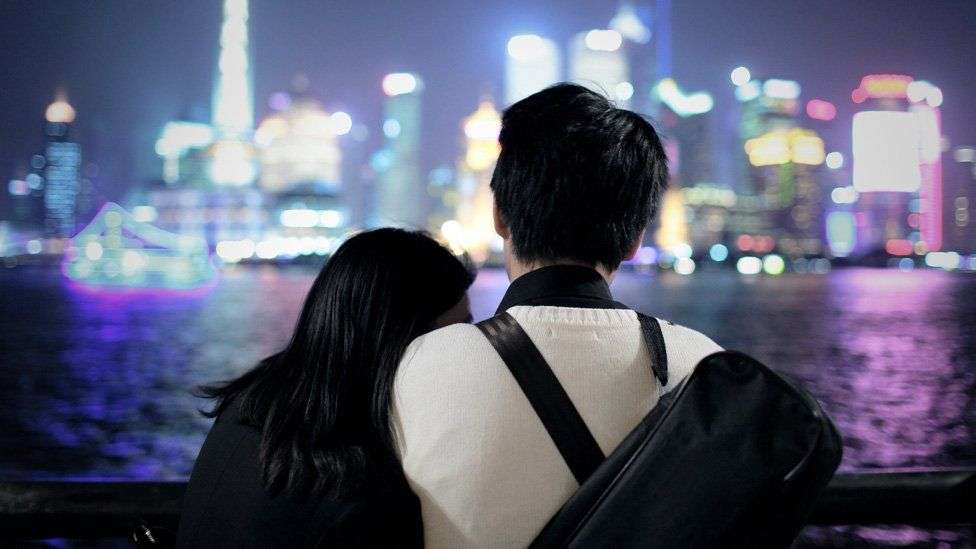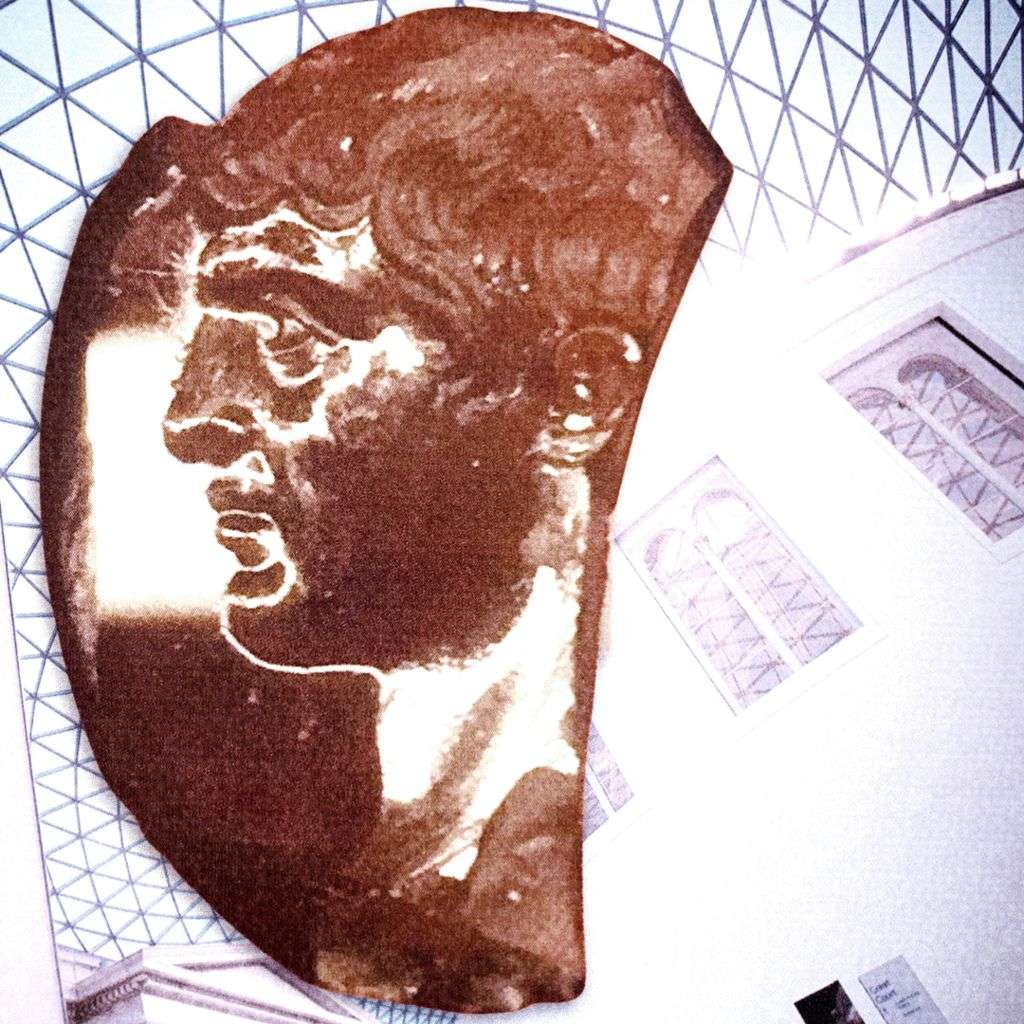Shanshan had never met anyone from Taiwan before January last year.
The 24-year-old, from Changsha City in central China, had also not really paid much attention to news about the self-governing island, which her country believes is Chinese territory and has promised to take one day.
But then she fell in love - she met her Taiwanese boyfriend playing online video games. They started chatting for hours, long talks during which she discovered he was "gentle and sensitive".
But even as Shanshan and her partner Guodong share sweet messages across the Taiwan Strait - preparing to meet her parents during the Chinese New Year festival - their governments are trading a ramped-up war of words in the run-up to Taiwan's presidential elections on Saturday.
China's President Xi Jinping has cast the decision at Taiwan's ballot box as a choice between war and peace. Under his leadership, Beijing has taken an ever sharper, firmer and often more aggressive tone towards the democratically-governed island, warning the world that it alone will decide how and when unification will happen.
However, despite regular military activities in the Taiwan Strait, President Xi has also repeatedly offered "peaceful reunification", while Beijing's Taiwan Affairs Office maintains that "both sides of the Taiwan Strait are one family".
But those most likely to listen to this message are its own people - not those living across the strait.
Shanshan and Guodong have very different views on the future of Taiwan.
"My boyfriend just wants to maintain the status quo and doesn't want independence or unification. But I support our country's position and hope for unification one day. We only discuss, we don't argue. The key is that we can't change these things, so we hope for positive developments," she says.
Their differing views have not affected their relationship. And yet, the issue has created very real barriers for the couple.
China banned "individual tourists" from visiting Taiwan in 2019. That means Shanshan cannot visit her partner's home or his parents, and she wonders if that will ever change.
But things are not much easier for Guodong when he arrives in China.
Shanshan has discovered that she and her boyfriend may share the same language, and her government says they are the same people, but he faces the same hurdles as many foreigners hoping to settle in mainland China.
The administration and paperwork involved for either one of them to stay with the other for any length of time is substantial. Paying for most things involves the need to generate a QR code on pre-registered Chinese phones, with Chinese apps linked to Chinese bank accounts - none of which he has.
"For example, when he comes to visit, buying tickets, booking hotels, and making payments are challenging, and even going to tourist sites, taking taxis, or going to the bank, he faces difficulties," Shanshan explains.
"After being together, I realised that there are many cross-strait couples facing restrictions and difficulties in meeting each other, and the marriage process is complicated and tedious."
China's relationship with Taiwan is therefore critical for this couple. Closer ties could make it easier for them to move between countries. For them, politics across the strait is tangible.
For others in China, Taiwan is part of a vision - the government's view of the future. State media highlights the ties between the two as a shining beacon of brotherhood and shared cultural heritage.
On a rocky outcrop of Pingtan island in Fujian province, the closest part of the Chinese mainland to Taiwan, tourists pay to stand on a platform and peer through binoculars at an outline of Taiwan 68 nautical miles (126km) away.
Many have travelled thousands of miles to get here. They brave the biting January winds and struggle to brace themselves against the gales as they stare out to sea over the rising white horses. Sea fog and cloud obscure any view of Taiwan, but still, they line up to take photographs at a strategically placed stone arch, using their arms to make love heart signs above their heads.
For some, this is a poignant moment.
Cui Xiuwen has come from northwest China's Shaanxi province in the hope of just a glimpse of Taiwan.
"My biggest wish after visiting here is that I hope the island of Taiwan can return to our motherland soon," the 61-year-old tells us excitedly.
"The urge and feeling became stronger while I've been here. In the past I didn't feel this so keenly. Our compatriots are watching each other across the water and we cannot unite."
She hugs our team warmly as she talks about her fear of conflict.
"We see and hear much talk about Taiwan and the mainland on TV. That's why I want to come here quickly and look at it. I hope Taiwan will be reclaimed in a peaceful way. I don't want war. The casualties will be huge. We want peace."
One young couple - dressed head to toe in Christian Dior - pose for their social media feeds in sunglasses while gazing wistfully out to sea.
They stand in stark contrast to some of those who live and work on this island, who admit to rarely thinking about their neighbour, just a few hours away by boat.
Dozens of local workers gather in groups on the concrete walls of the small port on the island to sort abalone shells for harvesting. Huddling together out of the wind, wrapped up in fleece headscarves and fishing overalls, they barely look up as they speak to us. They need to keep working to earn money - that is their main concern.
"I don't feel a connection. I have no friends or relatives there," says one woman as she uses her knife to scrape through the baskets to release the shellfish.
"I don't care whether it's reunified or not. We ordinary people don't care. This is up to the officials. We have no wish or hope. We just want enough to eat, we want a better life. We don't care about other things."
There are around 40 million people living in Fujian province. Many Taiwanese are thought to be descendants of Fujian immigrants, and Beijing often uses these ties as an argument for closer economic and social integration. It wants Fujian province to be the model for "peaceful unification with the motherland".
It's part of what analysts call a "carrot and stick" approach to Taiwan.
Or more recently - a display of warships and wooing.
China has named its new aircraft carrier after Fujian. It unveiled new images of its first domestically designed warship on state television just last week - part of President Xi's goal of making the People's Liberation Army a "world class military".
But alongside these flashy displays of military power, there is some evidence that Beijing is attempting to entice more Taiwanese people to the mainland.
The Chinese government has unveiled a detailed plan this week to try to bring more Taiwanese investors to Fujian and to encourage Taiwan residents to study, work and live in the south-eastern province.
One block of flats in Fuzhou, the OceanNewsUK found, was even going as far as to offer incredibly cheap rent to Taiwanese people. "Welcome home" said the sign on the front door, but when we spoke to a real estate agent they said that any such rental agreement needed permission from various government departments.
China also plans to build a high-speed railway across the strait "at an early date".
The simple fact is the two need each other, economically. China is Taiwan's biggest trading partner, and exports to China have enabled its economy to enjoy strong growth.
In an alleyway in Fuzhou, the main city in Fujian province, Li Haoyu from Taiwan tosses noodles into the sizzling wok as customers on mopeds wait for their dinner. He came to China seven years ago for a job at a funeral home. His path from there is a little vague, he's not even sure how old he is.
He hasn't been back for five years, but has to return soon as his travel permit to China will soon expire.
Taiwanese noodles have a simpler flavour, he says as his swirls the hot pan over the fire.
World headlines about war and business worries across the Taiwan Strait do not worry him. He is only concerned with the flow of customers in his street.
But he knows the relationship between his past and current homes are not good.
"I think the feelings are good between the people. But I don't know how the two governments feel about each other," he says as he carefully loads the noodles into a bowl.
"I hope ties can be normalized. I hope the two sides can be like two brothers, like a family," he adds.
The ties between Taiwan and China after this election could also have an impact on Shanshan's blossoming relationship.
Beijing has already warned that any attempt to push for Taiwan's formal independence will mean conflict - although many doubt Beijing will want a war on its doorstep as it battles an economic downturn.
All Shanshan can do is "hope for a better cross-strait relationship".
Luckily, their own relationship is going well, she adds.
"Despite the distance, we can be together. Both of us hope for a future together. We can accept these difficulties, and even if it's challenging, we will support and help each other."








